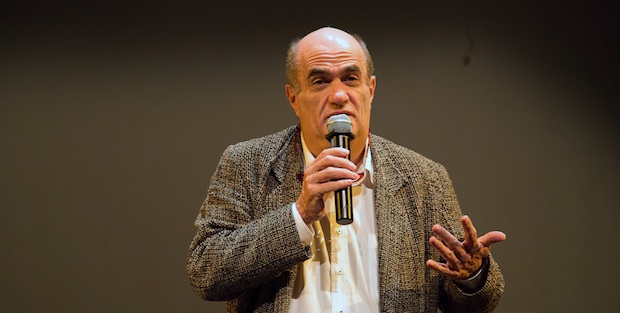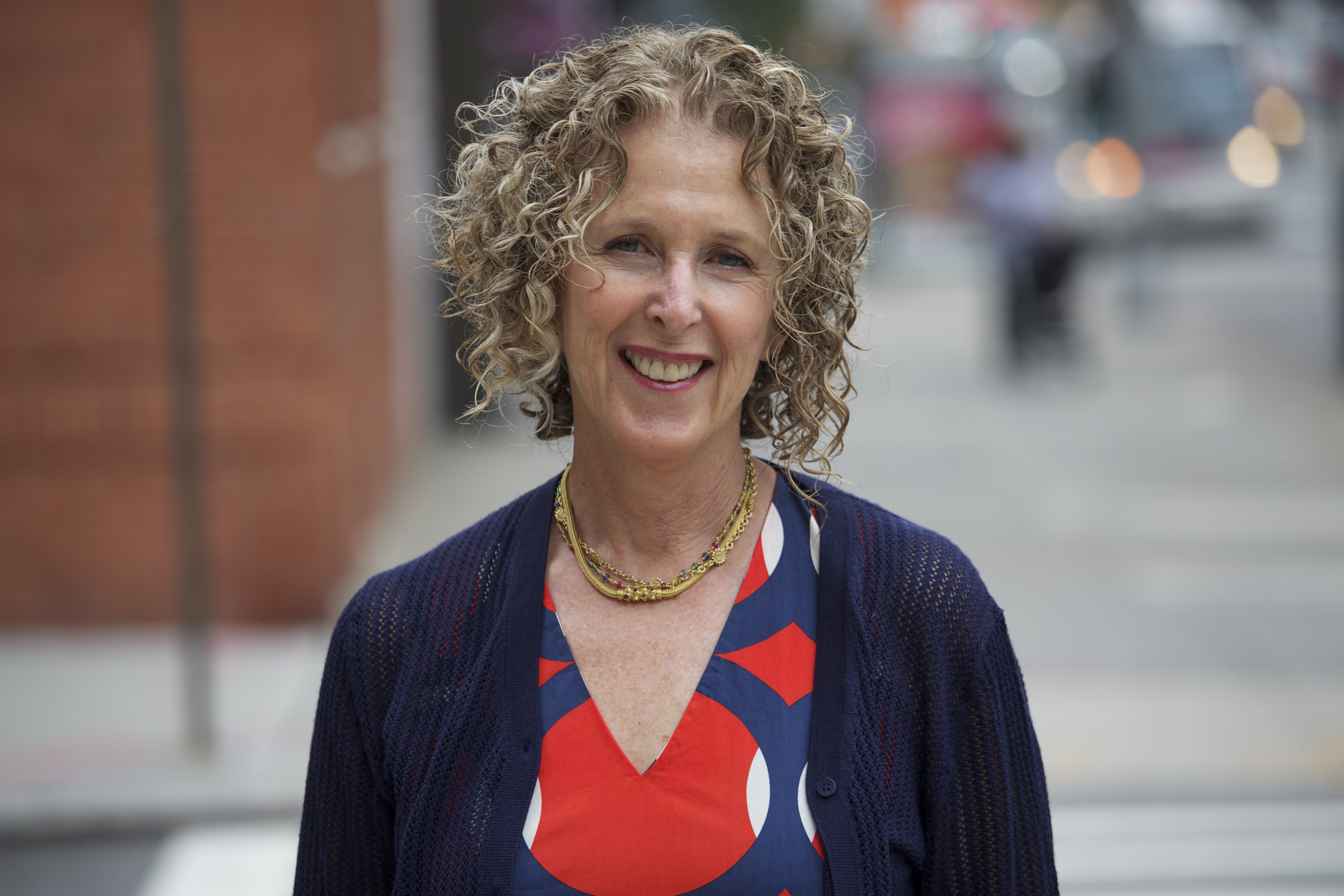The Irish writer Colm Tóibín, author of The Master, Brooklyn, and The Testament of Mary, among other novels, short stories, essays, and plays, began our February 8 conference by sharing a video (see below) of the Irish singer Maighread Ni Dhomhnaill, performing “Donal Og,” a song—in the Irish language—that is over 1000 years old.
He described the traditional Irish music scene as “a strange, subterranean world, immune to social change.” Maybe strange, maybe subterranean, but during the lively Q & A, it was clear that many LFNY 1ere and Tle students are at least a little familiar with traditional Irish music, and, more important, want to know more.
It was a clever move on the part of this Irish writer to frame his talk with music. Our easy access to so many kinds of music has created a generation of open-minded young people who will want to follow the links Tóibín made from “Donal Og,” to the song in the novel Brooklyn, whose singer is based on Irish singing legend Joe Heaney, to suggestions from the audience and Tóibín to listen to groups such as The Dubliners, Dropkick Murphy, and The Pogues and beyond to American bluegrass music, and singers like Emmylou Harris and the Everly Brothers. And, let’s not forget the traditional French music of Brittany.
The story Tóibín read aloud and discussed with us is called “A Song”. You can read it here.
Colm Tóibín at the Lycée Francais de New York, February 8th 2013.
In it a young man who hasn’t seen his mother in 18 years (the nonexistence of Irish divorce law made for sad and messy family breakups) hears her sing a traditional Irish song—her signature song, “Donal Og”—in a bar during a music festival.
The woman tending the bar may or may not know of the relationship, so there is a tension in what will be revealed. In the end, the young man leaves with his friends. Tóibín explained why he decided not to reunite the mother and son by imagining for us several ways the reunion might have gone. In the end, he decided, “nothing would mean more than something.”
He explained that the story was inspired in part by going to a music festival with an old friend whose son is a famous musician and in part by the singer Maighread Ni Dhomhnaill, who is, in fact, happily married. Writing for him is often a blend of real events out of which a story emerges from “five or six ingredients.”
This was the case with Tóibín’s novel Brooklyn, which the 1ere BFA students read for summer reading and from which all the other attendees had read an excerpt. Tóibín told us that he had always been a listener, and he once heard a neighbor in Ireland talk about a woman whose daughter had moved to Brooklyn. When she came home to visit she didn’t tell anyone she had gotten married until the very last minute, just before she returned to the States. That’s the barest outline of the plot of Brooklyn.
The excerpt we had all read was about the first Christmas that Eilis, the novel’s protagonist, spends in Brooklyn. She’s been invited to help serve Christmas dinner to the poor at her church by Father Flood, the priest who has arranged her move to Brooklyn and who would have worried about Eilis being alone at Christmas. After everyone’s been fed, she is called to the front of the room by a famous singer, down on his luck, who holds the audience spellbound with a traditional Irish song.
That singer, Tóibín told us, is based on Joe Heaney, a celebrated Irish singer, who emigrated to New York where he worked as a doorman. Eilis, who has seen in the singer a momentary resemblance to her dead father, is connected by the song to the Ireland she has left behind and to all the souls who have come to the church for both physical and spiritual nourishment.
Tóibín told us that the Irish admire and respect musicians more than they do the rich; he said that in the novel Eilis understands that “the men looked poor but had wealth in tradition.”
As always, LFNY students had great questions. One asked Toibin to talk about authenticity: “The only voice I can write in is my own,” he answered. “When I tried American dialog, every word was wrong.” He added that it’s hard to talk about authenticity in music; even the most traditional Irish music has added new instruments and electricity.
Another asked what made him start assignment writing. He recounted that at the age of 12 he didn’t like anyone or anything, but he wrote a line, found another one, showed it to no one, and eventually had a notebook full of poems. He was inspired as a teenager by Ernest Hemingway, particularly The Sun Also Rises. He “loved the sentences, grammar, style.” Also, he said, a line from Leonard Cohen’s “Suzanne:” “she feeds you tea and oranges that come all the way from China,” Bob Dylan, Simon & Garfunkel. Yes, back to the music.
I discovered Colm Tóibín’s work with The Master, a novel that imagines the writer Henry James at work and in love. I was particularly delighted to hear that the ending of Brooklyn, which bedeviled my BFA students, was inspired by the ending of James’s Portrait of a Lady. I’m pretty sure that everyone who attended the conference had at least one similar moment—a moment when we connect to art we know and love in a new way. We thank Colm Tóibín, one of our most admired writers, for gracing Lycée Français de New York with his beautiful and moving writing, his warmth and humor, and his love of music.
About the Author :
Before coming to the Lycée, Robin Aufses was the English department chair at J.F. Kennedy High School in Bellmore, New York, and an English teacher at Schreiber High School in Port Washington, New York. Robin is the author of College-board published articles about literature and co-author of The Language of Composition, Literature and Composition and Conversations in American Literature. She lives in Manhattan with her husband Arthur, a lawyer. They have two children, Kate and Michael.



